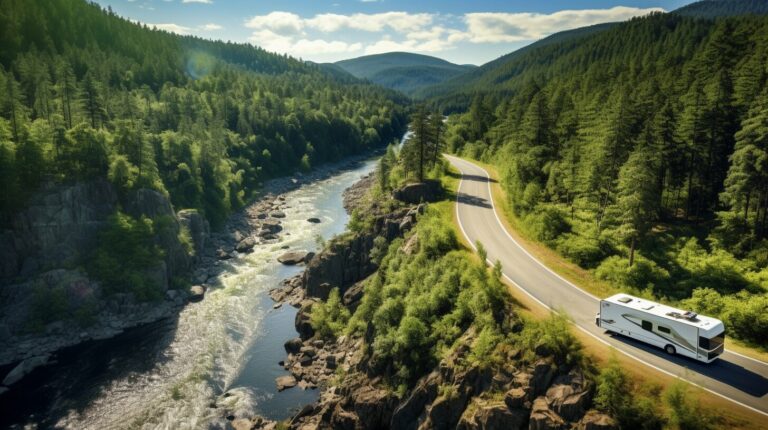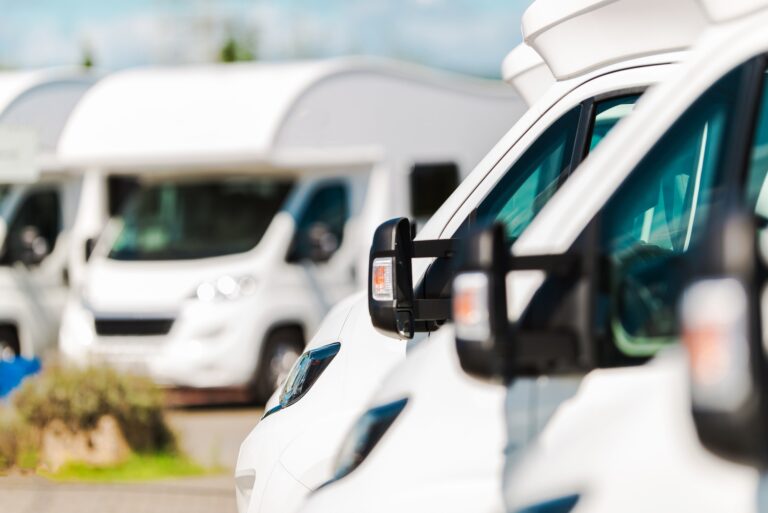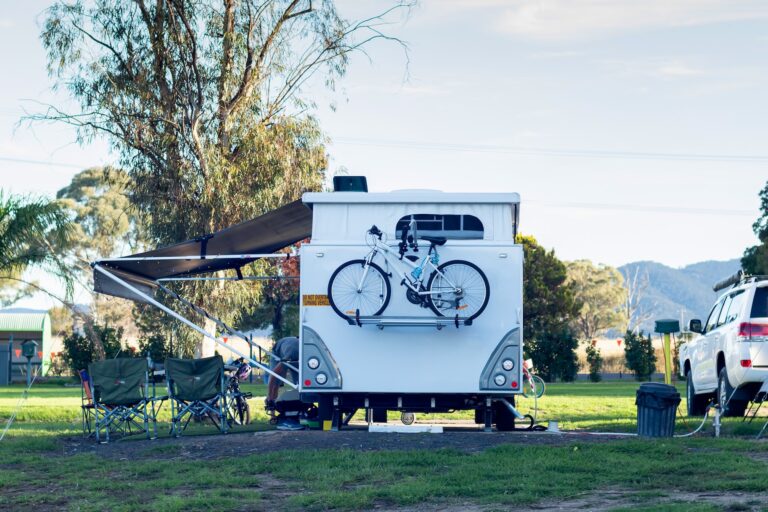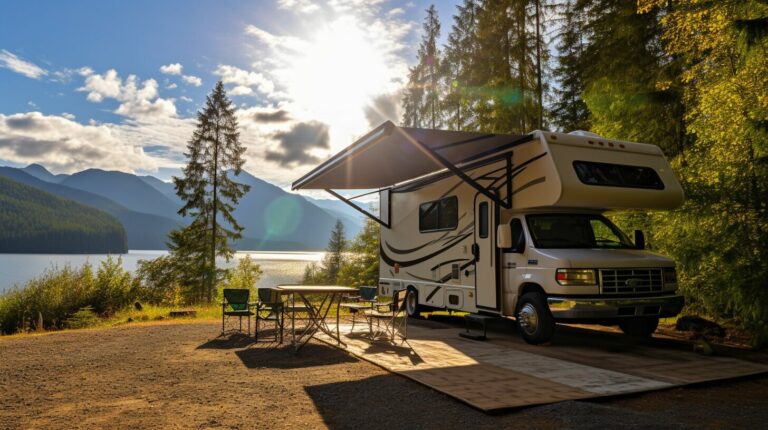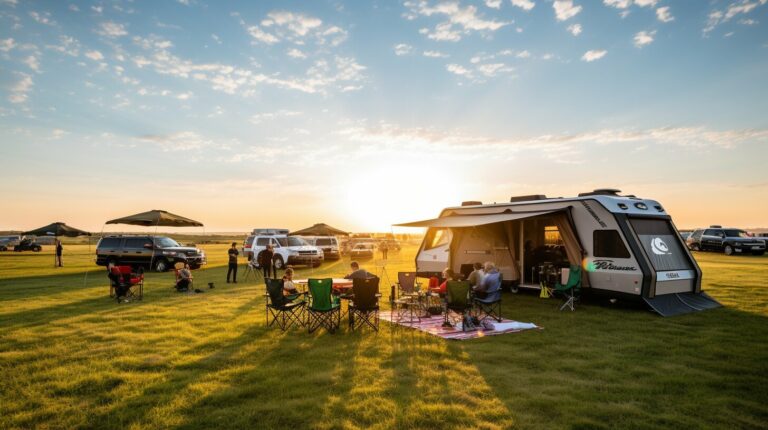Congratulations on your new RV! This exciting investment opens up a world of travel possibilities and adventure. However, it’s crucial to ensure your investment is protected with the right insurance coverage. RV insurance can be a complex topic, with various types of policies, coverages, and factors to consider. In this comprehensive guide, we will explore the ins and outs of RV insurance, discuss the importance of coverage, and provide tips for selecting the right policy to safeguard your home on wheels.
1. Understanding the Importance of RV Insurance
RV insurance is essential for protecting your investment, ensuring your financial security, and complying with legal requirements. The right coverage can provide peace of mind, knowing that you’re prepared for unexpected events and expenses.
Key reasons for obtaining RV insurance:
- Protection from financial loss due to accidents, theft, or damage to your RV, personal belongings, and attached accessories.
- Liability coverage for injuries or property damage caused to others while using your RV.
- Compliance with state laws and lender requirements, as many states require a minimum level of liability coverage and lenders often mandate comprehensive and collision coverage for financed RVs.
- Access to specialized RV coverages and services, such as roadside assistance, emergency expense coverage, and full-time RV living endorsements.
- Peace of mind, knowing that your investment is protected and you’re prepared for unforeseen events on the road.
2. Types of RV Insurance Policies and Coverages
RV insurance policies can vary widely, depending on the type of RV, its value, usage, and additional factors. Understanding the different types of policies and coverages can help you select the best protection for your unique needs.
Common types of RV insurance policies and coverages:
- Liability Coverage: Protects you from financial responsibility for bodily injury or property damage caused to others while using your RV. This is a legally required coverage in most states.
- Comprehensive Coverage: Covers damage to your RV resulting from non-collision events, such as theft, fire, vandalism, and weather-related incidents.
- Collision Coverage: Covers damage to your RV resulting from a collision with another vehicle or object.
- Uninsured/Underinsured Motorist Coverage: Protects you from financial loss if you’re involved in an accident with a driver who has insufficient or no insurance.
- Personal Effects Coverage: Covers the replacement cost of personal belongings inside your RV, such as clothing, electronics, and appliances, if they are damaged, destroyed, or stolen.
- Medical Payments Coverage: Covers medical expenses for you and your passengers if injured in an accident, regardless of who is at fault.
- Emergency Expense Coverage: Covers costs related to temporary accommodations, transportation, and other expenses if your RV becomes uninhabitable due to a covered loss.
- Full-Time RV Living Endorsement: Provides additional liability, personal effects, and medical payments coverage tailored to the unique needs of those who live in their RVs full-time.
3. Factors that Influence RV Insurance Costs
Several factors can influence the cost of your RV insurance policy, including the type of RV, its value, usage, and your personal information.
Key factors affecting RV insurance costs:
- Type of RV: Class A motorhomes, which are typically larger and more valuable, often have higher insurance premiums than Class B or Class C motorhomes and travel trailers.
- RV value: More expensive RVs generally have higher insurance premiums due to their higher replacement or repair costs.
- Usage: Full-time RVers may have higher premiums than part-time users, as they typically require more extensive coverage and pose a higher risk due to increased usage.
- Driving history: Drivers with a clean driving record typically enjoy lower insurance premiums, while those with accidents or violations may face higher rates.
- Credit history: A good credit score can positively impact your insurance premiums, as insurers view responsible credit managementas an indicator of responsible driving behavior.
- Location: Some states have higher insurance rates due to factors such as population density, weather conditions, and the prevalence of RV theft or accidents.
4. Tips for Selecting the Right RV Insurance Policy
Choosing the right RV insurance policy involves carefully considering your unique needs, risks, and budget to ensure you have adequate protection and peace of mind.
Tips for selecting the best RV insurance policy:
- Assess your RV usage, such as the frequency of travel, destinations, and whether you use your RV full-time or part-time, to determine the types and levels of coverage you require.
- Obtain multiple quotes from various insurance providers to compare coverage options, pricing, and customer service.
- Choose an insurance provider with a strong reputation for financial stability, customer service, and claims handling, as these factors can significantly impact your experience in the event of a loss.
- Consider bundling your RV insurance with other insurance policies, such as auto or homeowners insurance, to potentially receive discounts and streamline your insurance management.
- Regularly review and update your RV insurance policy to ensure it continues to meet your evolving needs, as factors such as RV upgrades, changes in usage, or relocation can affect your coverage requirements.
5. Tips for Saving Money on RV Insurance
While RV insurance is an essential investment, there are several strategies you can employ to save money on your premiums without sacrificing coverage or peace of mind.
Tips for reducing RV insurance costs:
- Increase your deductible: Opting for a higher deductible can result in lower insurance premiums, but ensure you can afford the deductible amount in the event of a claim.
- Take advantage of discounts: Many insurance providers offer discounts for factors such as bundling policies, having a clean driving record, completing RV safety courses, or installing safety and anti-theft devices.
- Choose a less expensive RV: Opting for a less valuable or smaller RV, such as a Class B or C motorhome or a travel trailer, can result in lower insurance premiums.
- Limit your coverage: Consider reducing coverage levels or eliminating unnecessary coverages if you’re confident in your ability to absorb potential financial losses. However, be cautious not to underinsure your RV, as this can lead to significant financial consequences in the event of a loss.
- Shop around: Regularly review and compare insurance quotes to ensure you’re receiving the best coverage and pricing for your unique needs.
6. Navigating the RV Insurance Claims Process
In the event of an accident, theft, or other loss, it’s essential to understand the RV insurance claims process and your responsibilities as an insured party.
Key steps in the RV insurance claims process:
- Ensure the safety of all parties involved and contact emergency services if needed.
- Document the incident by taking photos of the damage, obtaining contact information from witnesses and other parties involved, and recording relevant details, such as the time, location, and circumstances of the event.
- Report the incident to your insurance provider as soon as possible to initiate the claims process.
- Cooperate with your insurance provider and provide any requested documentation or information to support your claim.
- Arrange for an inspection or appraisal of the damage, if required, and obtain estimates for repairs from reputable service providers.
- Review your insurance policy and settlement offer carefully to ensure you understand your coverage, deductible, and any applicable policy limits or exclusions.
- Negotiate with your insurance provider if you believe the settlement offer is insufficient or unfair, and consider seeking the assistance of a public adjuster or attorney if needed.
7. Frequently Asked Questions About RV Insurance
As you navigate the complexities of RV insurance, you may encounter questions or concerns. Below, we address some common inquiries to help you better understand and manage your RV insurance policy.
Q: Is RV insurance required by law?
A: In most states, a minimum level of liability insurance is required for motorized RVs, such as Class A, B, or C motorhomes. However, towable RVs, such as travel trailers and fifth wheels, may not require separate insurance, as they may be covered under your auto insurance policy’s liability coverage. It’s essential to check your state’s laws and consult with your insurance provider to ensure compliance.
Q: Does RV insurance cover personal belongings?
A: Some RV insurance policies include personal effects coverage, which provides protection for personal belongings inside your RV, such as clothing, electronics, and appliances. However, the coverage limits and exclusions may vary, so it’s essential to review your policy and consider purchasing additional coverage if needed.
Q: Can I suspend my RV insurance during the off-season?
A: Some insurance providers offer the option to suspend or reduce coverage during periods of inactivity, such as winter storage. However, it’s essential to maintain comprehensive coverage to protect against theft, vandalism, or weather-related damage during these periods. Consult with your insurance provider to discuss your options and any potential impacts on your premiums or coverage.
Q: What factors should I consider when determining my coverage limits?
A: When selecting coverage limits, consider factors such as the value of your RV and its contents, your financial resources and risk tolerance, the potential costs of liability claims, and any legal or lender requirements. It’s essential to strike a balance between adequate protection and affordability to ensure peace of mind without straining your budget.
Conclusion
Protecting your RV investment with the right insurance coverage is essential for ensuring your financial security, compliance with legal requirements, and peace of mind on the road. By understanding the various types of policies and coverages, assessing your unique needs and risks, and employing strategies to save money on your premiums, you can safeguard your home on wheels and focus on enjoying the freedom, adventure, and memories that RV ownership offers.
So, buckle up, hit the open road with confidence, and embark on your RV journey, knowing that your investment is protected and you’re prepared for the unexpected twists and turns that lie ahead.

